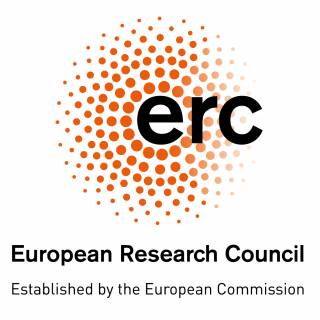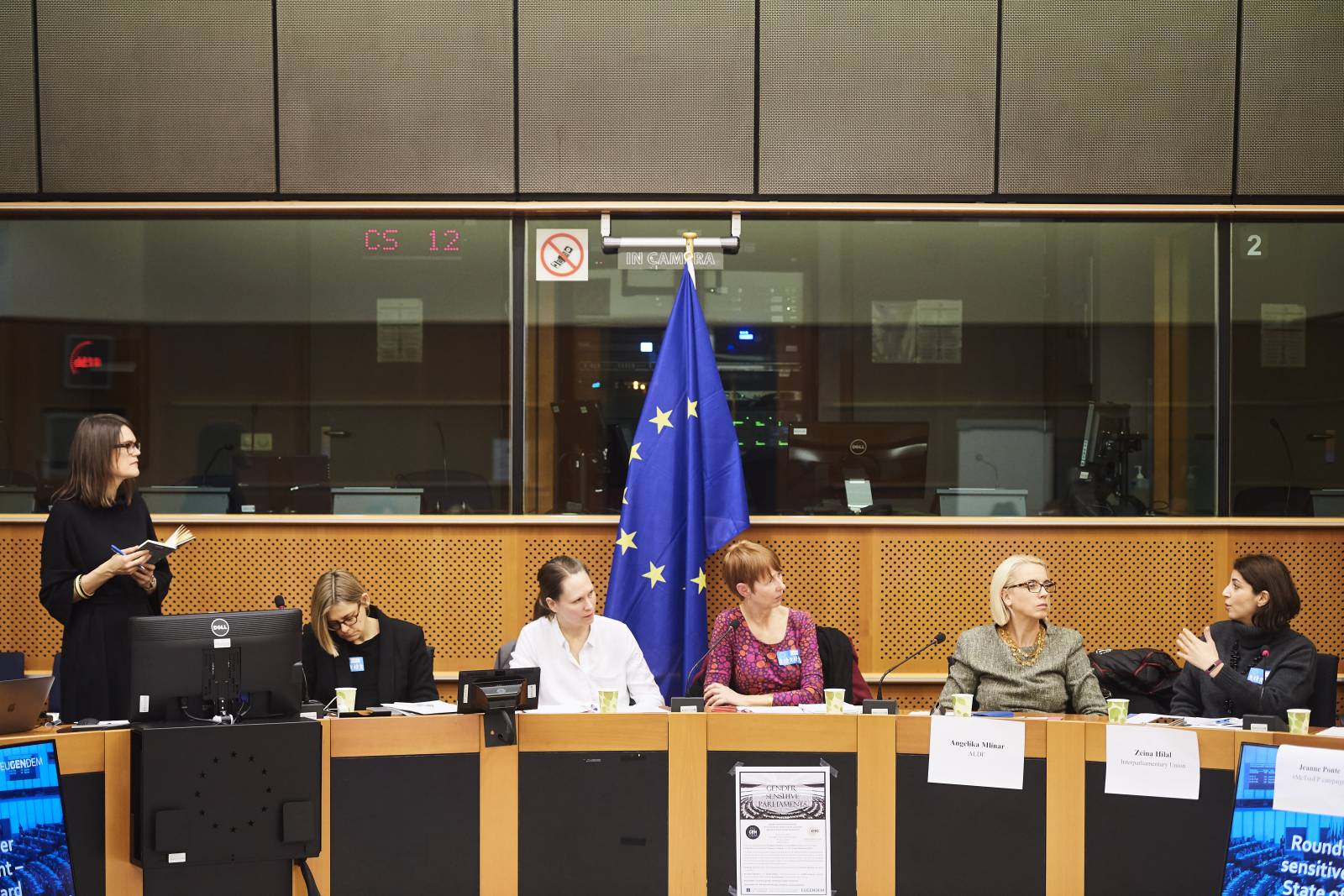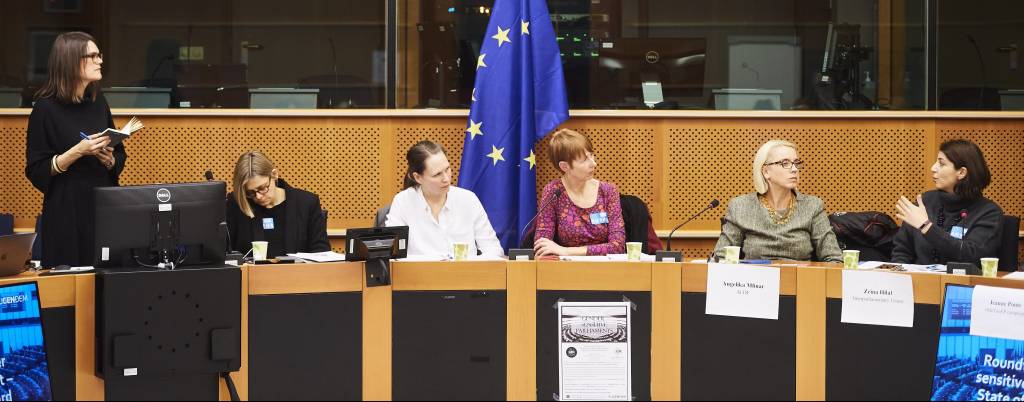
Is the European Parliament gender-sensitive? If not, how can it become one? With this burning question we successfully and officially launched our ERC funded research project EUGenDem in the European Parliament – the site of our parliamentary ethnography and data gathering – in Brussels 30 January 2019.
We organised the seminar “Gender Sensitive Parliaments: A framework for advancing the equalities agenda in the European Parliament” together with MEP Sirpa Pietikäinen (EPP) and her staff whom we thank for co-operation.
Despite its reputation as the most gender equal EU institution, the European Parliament too is facing questions about gender balance in its top positions as well as non-sexist institutional culture, which does not permit any forms of discrimination or harassment.
The upcoming European elections 2019 provided an excellent moment to bring leading academic experts on the topic into a dialogue with the politicians and staff of the European Parliament.
Our first two keynote speakers were academics who have done highly impactful research in their national parliaments to push forward more gender equal practices.
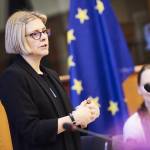
Professor Sarah Childs (Birkbeck, University of London, UK) spoke about her rather unusual and very special secondment in the UK House of Commons as an independent researcher and about the Good Parliament Report which she authored as a result of her research there. She had some key pieces of advice for academics working within parliaments who share the aim to change practices. These included: the importance of being independent and being seen to be independent; building the right support structures within the parliament; always focusing on being impactful; always being pragmatic; and making sure that the identified recommendations were technically accurate in a very complex institutional and normative setting.
The strategy paid off. The list of achievements towards a more gender-equal UK House of Commons was impressive. Some very unequal, archaic practices have been changed – although a lot remains to be done. To give few of Childs’s examples: children are now permitted in the division lobbies; the dress code has been revised; and the rule of “10 year dead” in artwork, which resulted in mainly men’s pictures on the walls, has been abolished, not to mention the establishment of the now permanent Women and Equalities committee. Most recently, the pilot of the Baby Leave/Proxy Vote was passed.
All in all the list gives an indication of the diversity of issues involved in making parliaments more gender-sensitive. And the amount of work that needs to be done.
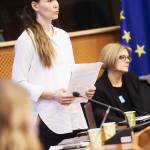
Dr Josefina Erikson (Uppsala University, Sweden) presented the findings of her extensive studies about the gender equality work done with MPs in the Swedish Parliament, Riksdagen. This gender equality work has a long history dating back to 1990s. The Swedish lesson is that in parliaments too such gender equality work needs to be institutionalised at high level, which has been done in Riksdagen with a working group under the Speaker of the Parliament. This institutionalisation has ensured both continuity and legitimacy for gender equality work in the Swedish Parliament. The key achievements include a childcare center in the parliament; fixed meeting hours; Gender Equality Action Plans for MPs; extensive studies to analyse gender equality; and support for new legislators.
Despite the efforts to make sure that women and men MPs have a level playing field for their political work, the research by Josefina Erikson and her co-author Cecilia Josefsson shows that especially younger women MPs still face gendered barriers in the parliament including devaluing and doubting their competences.
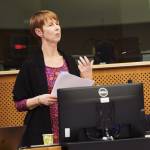
Senior Policy Advisor Essa Reijmers, on behalf of the European Women’s Lobby (EWL, Brussels), presented the EWL “HerNetHerRights” report on digital violence against women in politics. The report demonstrates that violence against women in politics is real and omnipresent and that the violence is gendered and constitutes a continuum of violence as it perpetuates gender inequality. Combating violence against women in politics must therefore be a key goal for more gender-sensitive parliaments, including the European Parliament.
Specific forms of violence targeting women in politics include DDOS (“Distributed denial of service”) attacks – which may specifically target campaign websites and overwhelm them with traffic from multiple sources making them unavailable. Such violence also includes malware and mob attacks which are other forms of cyber-harassment and organised online attacks. The consequences of such violence are twofold. On the one hand it has consequences on women such as physical and psychological injuries, including trauma and risk of suicide. On the other hand, it harms democracy as it may dissuade women from being candidates and potentially result in the exclusion of women from politics.
From the perspective provided by the report, a gender-sensitive parliament promotes, prevents, and protects by considering online abuse as a real threat, and by including a gender perspective in legislation and policy; by ensuring basic security control on all devices; by helping candidates protect their campaigns; and, eventually, by organising specific trainings for candidates and officeholders.
These insightful keynotes were followed by a prominent roundtable with MEP Angelika Mlinar (ALDE), MEP Julie Ward (S&D), Project Manager Zeina Hilal (IPU) and Jeanne Ponte (Founder of the #MeTooEP campaign). The roundtable debated the issue at the level of the European Parliament and provided concrete suggestions for the way forward. You can read about it here.
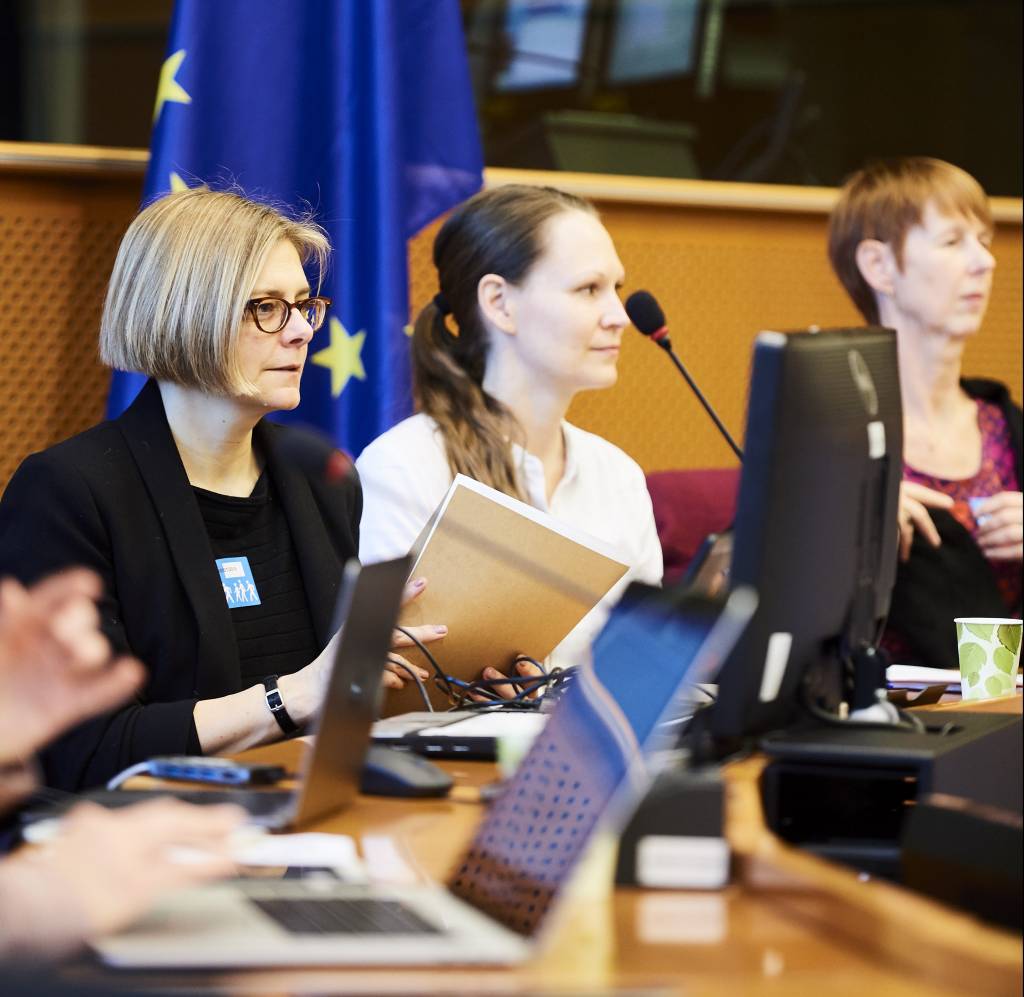
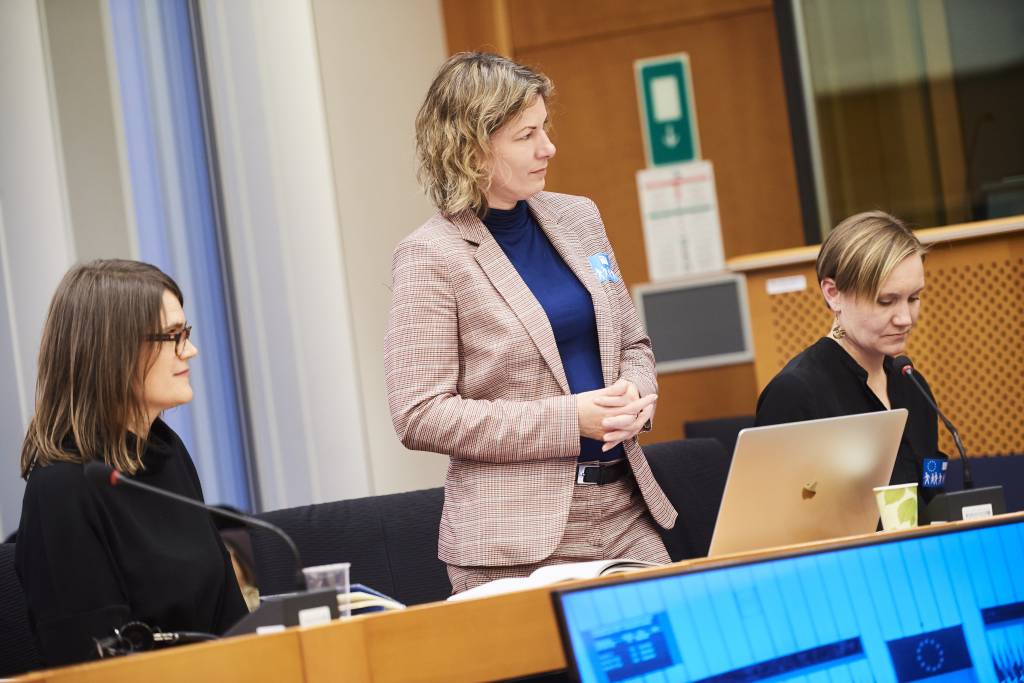
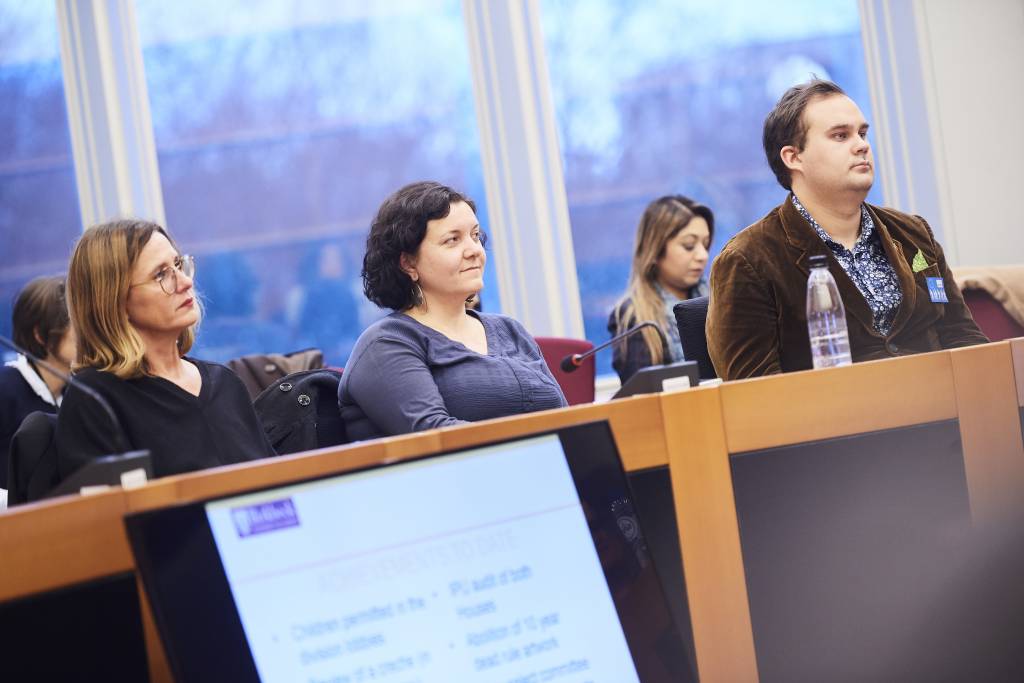
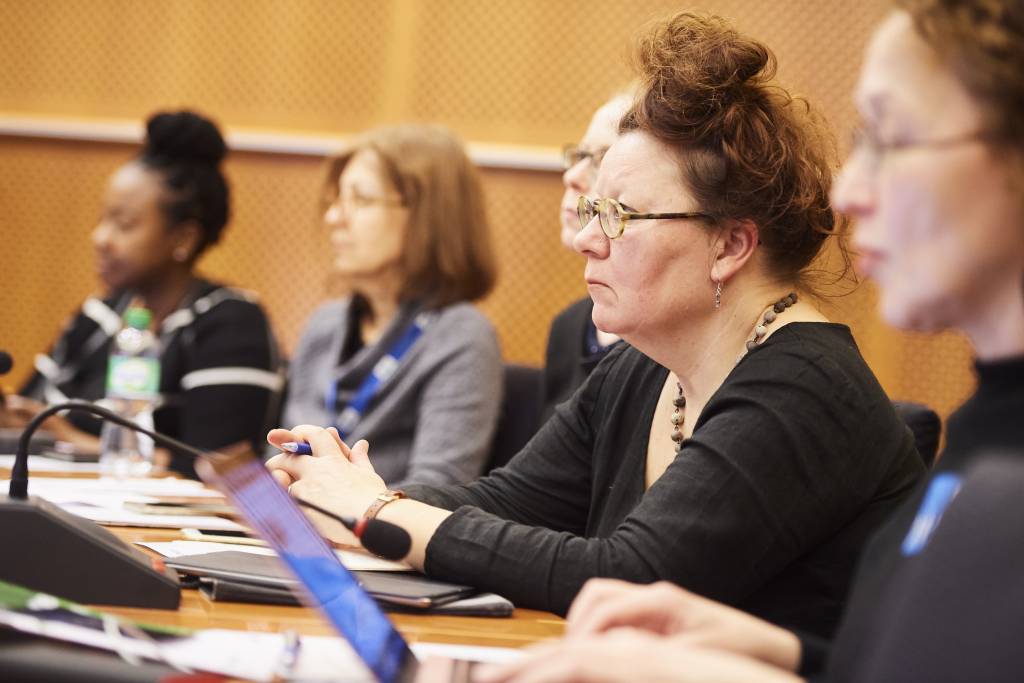
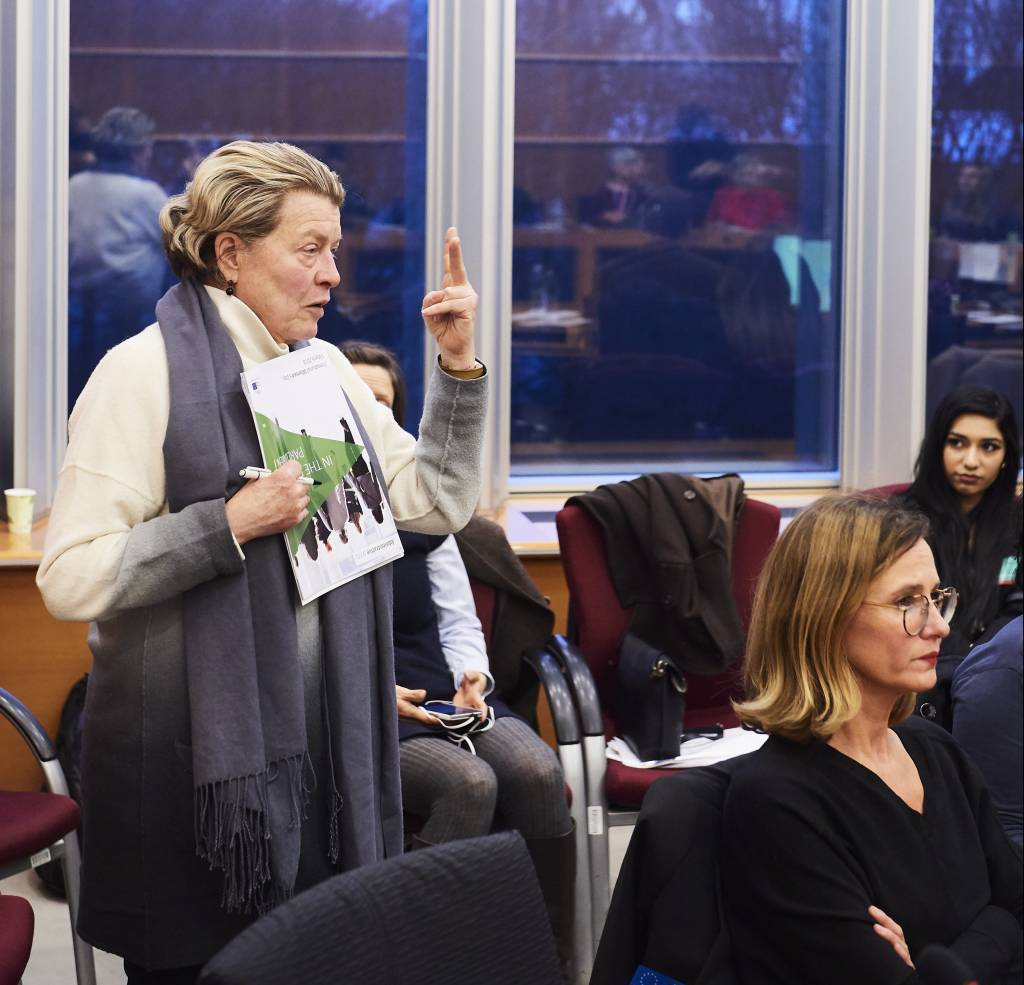

Photos by François de Ribaucourt

